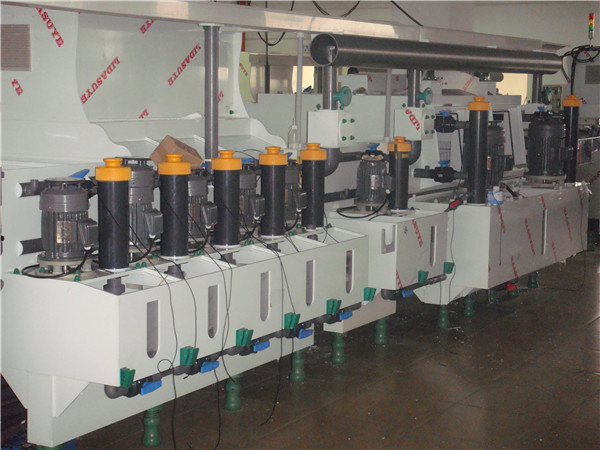Des . 12, 2024 17:11 Back to list
High-Density Polyethylene Pipes for Efficient Irrigation Systems and Water Management Solutions
The Importance of HDPE Irrigation Pipes in Modern Agriculture
In the realm of modern agriculture, efficient water management is crucial for enhancing crop productivity and sustainability. High-Density Polyethylene (HDPE) irrigation pipes have emerged as a revolutionary solution, transforming the way farmers manage irrigation systems. This article will explore the benefits, applications, and overall significance of HDPE irrigation pipes in contemporary agricultural practices.
Understanding HDPE
High-Density Polyethylene (HDPE) is a thermoplastic polymer that is renowned for its strength, durability, and resistance to various environmental factors. This material is particularly favored in irrigation systems due to its low friction coefficient, which facilitates better water flow and minimizes pressure loss. Additionally, HDPE pipes are resistant to corrosion, chemical damage, and UV radiation, ensuring long-term reliability.
Benefits of HDPE Irrigation Pipes
1. Durability and Longevity One of the primary advantages of HDPE pipes is their exceptional lifespan. When properly installed and maintained, HDPE pipes can last for over 50 years. This long service life not only reduces the need for frequent replacements but also minimizes the overall cost of irrigation systems in the long run.
2. Flexibility and Lightweight HDPE pipes are significantly lighter than traditional materials such as PVC or metal. This characteristic makes them easier to handle and install, thereby reducing labor costs and installation time. Additionally, the flexibility of HDPE allows it to withstand ground movement and pressure without breaking, making it ideal for various terrains.
3. Resistance to Corrosion and Chemicals Unlike metal pipes that may corrode over time, HDPE is immune to rust and degradation caused by chemicals often found in fertilizers and pesticides. This property ensures that the water delivered through HDPE irrigation pipes remains uncontaminated, promoting healthier crop growth.
4. Cost-Effectiveness Although the initial investment in HDPE pipes may be higher than some traditional options, the long-term savings in maintenance, replacement, and water efficiency make them a cost-effective choice. Reduced water wastage also translates to lower utility costs for farmers.
hdpe irrigation pipe

5. Environmental Sustainability HDPE pipes are recyclable and contribute to reduced plastic waste. By choosing HDPE, farmers not only invest in their operations but also contribute to a more sustainable agricultural industry. Water-efficient irrigation practices further enhance environmental stewardship, as they reduce the pressure on local water supplies.
Applications of HDPE Irrigation Pipes
HDPE irrigation pipes are versatile and can be utilized in various agricultural applications. They are suitable for
- Drip Irrigation In drip systems, HDPE pipes can deliver water directly to the plant roots, significantly reducing water wastage and ensuring that plants receive the moisture they need. This method is particularly beneficial for high-value crops such as fruits and vegetables.
- Sprinkler Systems HDPE pipes can be used to build efficient sprinkler systems that provide even water distribution over large areas. These systems can be automated, allowing for precise control over watering schedules.
- Subsurface Irrigation This method involves burying HDPE pipes underground to supply water directly to the root zone, minimizing evaporation and runoff. Subsurface irrigation is ideal for arid regions where water conservation is essential.
Conclusion
As the global population continues to rise, the demand for food production will intensify, necessitating efficient and sustainable agricultural practices. HDPE irrigation pipes represent a significant advancement in irrigation technology, providing farmers with a reliable, cost-effective, and environmentally-friendly solution. By leveraging the benefits of HDPE, agricultural producers can enhance their water management practices, increase crop yields, and contribute to a more sustainable future. Embracing such innovative technologies is not just a choice for improved efficiency; it is an imperative for sustaining agriculture in the face of environmental challenges and resource limitations. Thus, the adoption of HDPE irrigation pipes is not merely a trend but a vital component of modern agriculture's evolution.
-
HDPE Natural Sheet: Durable, Food-Grade & Versatile Plastic Solutions
NewsAug.27,2025
-
Durable Glossy PVC Rigid Sheet | Premium High-Shine Panels
NewsAug.26,2025
-
Durable PP Rigid Sheet: Lightweight, Chemical Resistant Solutions
NewsAug.21,2025
-
PVC Grey Sheet for Extraction: Chemical Resistant & Durable
NewsAug.19,2025
-
Durable PVC Pipe Fittings for Plumbing & Irrigation Needs
NewsAug.18,2025
-
HDPE Steel Belt Reinforced Spiral Corrugated Pipe | High Strength
NewsAug.17,2025

